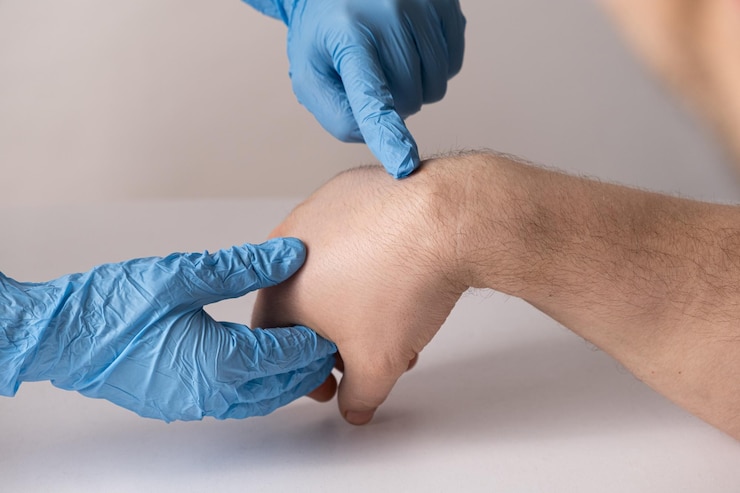Lipomas are benign tumors made of fat tissue that can occur anywhere on the body. Though they are generally harmless, some people choose to have them removed for cosmetic reasons or due to discomfort caused by their size or location. If you’re planning to undergo lipoma treatment, proper preparation is essential to ensure a smooth experience. This guide will walk you through how to prepare for your lipoma treatment so that you're well-informed and ready for the procedure.
Understanding the Procedure
Before diving into the specifics of preparation, it’s important to understand the basics of Lipoma Treatment in Dubai. Lipomas are usually removed through minor surgery, where a surgeon excises the fatty lump. In some cases, liposuction or steroid injections might be considered as alternative treatments, but surgical removal remains the most common and effective method. The procedure is typically performed under local anesthesia and is minimally invasive, meaning recovery time is usually short.
However, it’s crucial to consult with a qualified healthcare professional to determine the best course of action based on the size, location, and nature of the lipoma. This initial consultation will provide you with a clear understanding of the steps involved in your treatment, and how you can prepare effectively.
Preparing for Your Consultation
The first step in preparing for your lipoma treatment is scheduling a consultation with your doctor or a specialist. During this consultation, you’ll have the opportunity to discuss your concerns, medical history, and expectations for the procedure. Here’s how you can prepare for the consultation:
- Gather Your Medical History: Bring a detailed list of your medical history, including any past surgeries, allergies, and current medications. This will help your doctor understand any potential risks and how to best tailor the treatment for your needs.
- List Your Symptoms: While most lipomas don’t cause pain, some people experience discomfort or tenderness. Make sure to note any symptoms you’ve experienced, such as changes in the size or shape of the lipoma, and share them during the consultation.
- Ask Questions: Prepare a list of questions for your doctor. This can include asking about the risks of the procedure, what type of anesthesia will be used, and how long the recovery period will take.
Being well-prepared for this meeting can ensure you have all the information you need before deciding on the treatment.
Pre-Treatment Instructions
Once your lipoma removal procedure has been scheduled, your doctor will provide you with a set of pre-treatment instructions. These are crucial to follow in order to avoid complications during the procedure. Below are some common instructions that patients are typically advised to adhere to:
- Avoid Blood Thinners: If you are taking blood-thinning medications, such as aspirin or ibuprofen, your doctor will likely ask you to stop using them a few days before the procedure. Blood thinners can increase the risk of excessive bleeding during surgery.
- Stop Smoking: Smoking can impair wound healing and increase the risk of complications after surgery. If you smoke, it's recommended to stop at least two weeks before your lipoma treatment and continue avoiding it during recovery.
- Limit Alcohol Consumption: Avoid consuming alcohol at least 24 to 48 hours before the surgery. Alcohol can interfere with the anesthesia and affect your body’s ability to heal.
- Arrange for Transportation: Even though lipoma removal is a minimally invasive procedure, you may still feel drowsy from the anesthesia. It's wise to arrange for someone to drive you home after the treatment.
What to Expect on the Day of the Procedure
On the day of your lipoma treatment, there are several steps you can take to ensure you’re as comfortable as possible before and after the procedure:
- Wear Comfortable Clothing: Dress in loose, comfortable clothing that can easily be removed if needed. Depending on the location of the lipoma, your doctor may need access to a specific part of your body, so wearing something easy to change out of is important.
- Fast if Required: Some procedures, especially those involving more complex lipoma removal, may require fasting. Your doctor will inform you if you need to avoid food or drink for a certain period before the surgery.
- Arrive Early: Plan to arrive at the clinic or hospital well before your scheduled appointment. This gives you enough time to complete any last-minute paperwork and get settled before the procedure begins.
Post-Procedure Care
After the procedure, your doctor will provide specific instructions for wound care and recovery. Following these instructions is crucial for preventing infection and ensuring optimal healing. Here are some general tips to follow:
- Keep the Wound Clean: Your surgical site may be covered with a bandage or dressing. It's important to keep the area clean and dry to prevent infection. Follow your doctor’s instructions on when and how to change the dressing.
- Limit Physical Activity: Avoid strenuous physical activity for the first few days after surgery. Physical strain can put pressure on the wound and may cause it to reopen or heal improperly.
- Take Prescribed Medications: If your doctor prescribes pain relievers or antibiotics, make sure to take them as directed. This will help manage any discomfort and reduce the risk of infection.
- Watch for Signs of Infection: While complications are rare, it's important to monitor the surgical site for any signs of infection. These can include redness, swelling, increased pain, or drainage. If you notice any of these symptoms, contact your doctor immediately.
Final Thoughts
Preparing for your lipoma treatment is a straightforward process that involves careful planning and following your doctor’s guidelines. From gathering your medical history for the consultation to adhering to pre-surgery instructions, taking these steps can significantly improve your treatment experience. Remember, each case is unique, so always rely on your healthcare provider for specific advice tailored to your condition. By staying informed and prepared, you’ll be ready for a successful and smooth lipoma treatment.





Comments